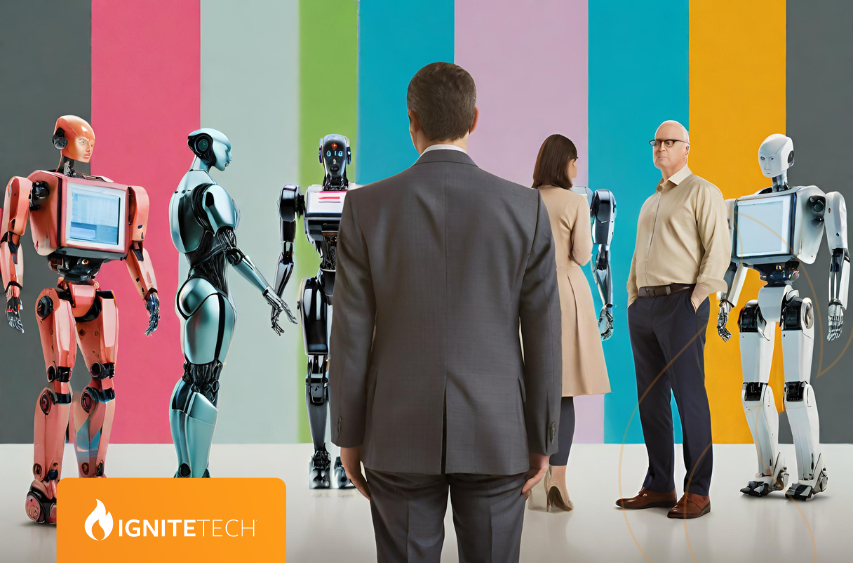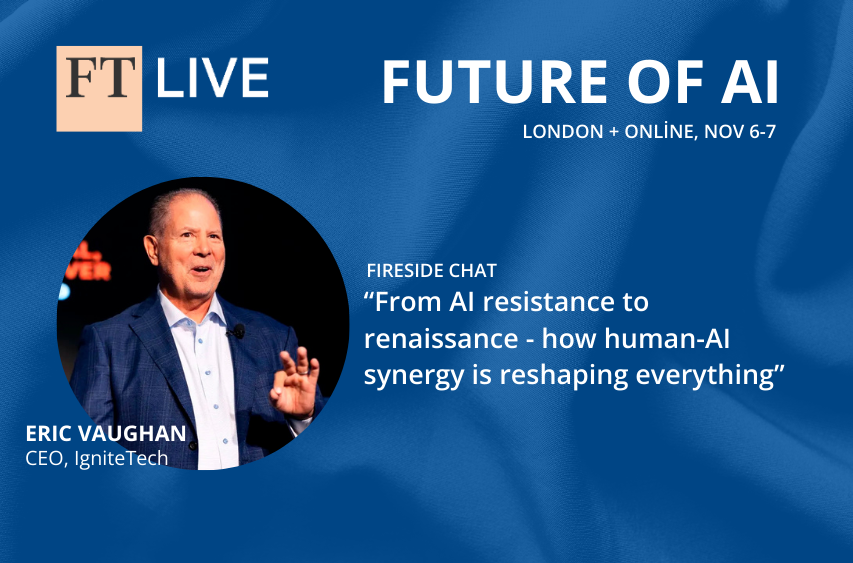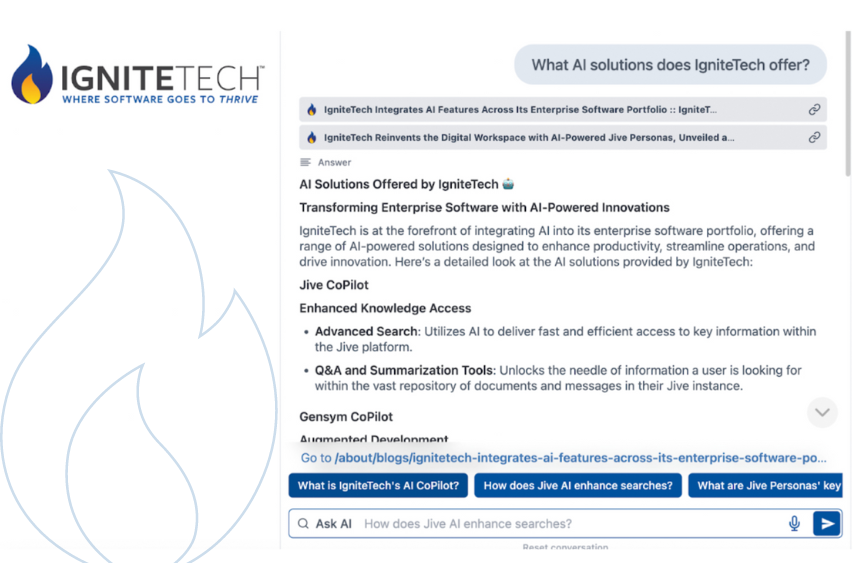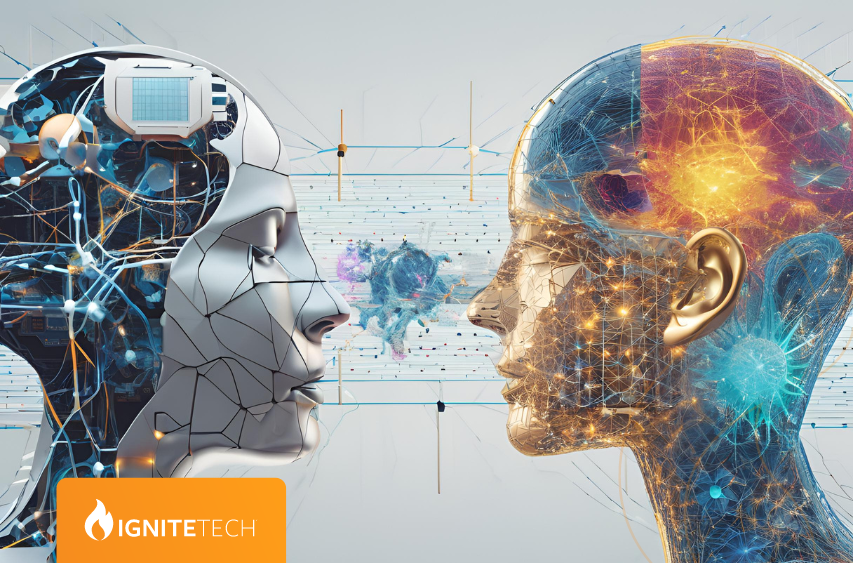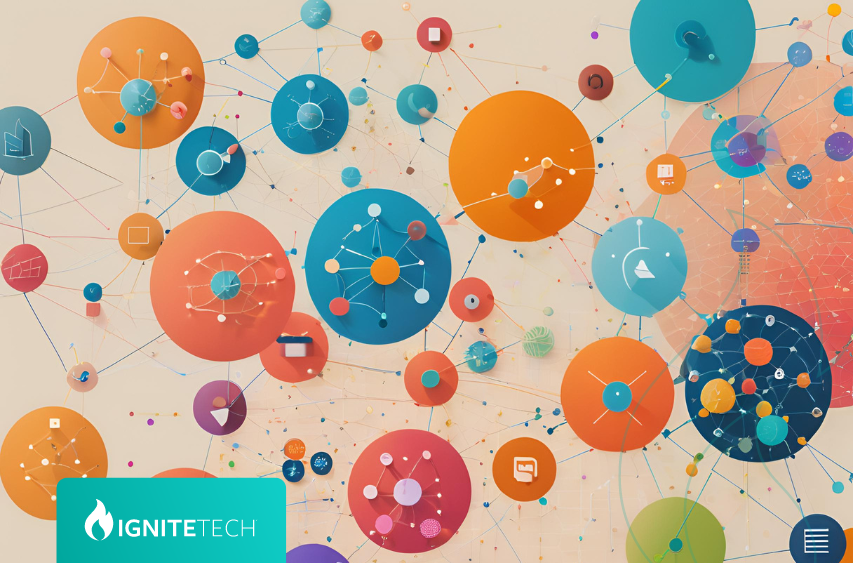Artificial intelligence (AI) has become a transformative force in the business world, offering unprecedented opportunities for innovation, efficiency, and growth. As a business leader, it is essential to separate fact from fiction when it comes to AI to make informed decisions and effectively leverage this technology for your organization's success. In this blog post, we will explore common misconceptions surrounding AI and provide insights on how to navigate the complexities of AI implementation.
❌Fiction: AI Is Always Accurate and Unbiased
One of the most prevalent misconceptions about AI is that it is infallible and completely objective. However, the reality is that AI's accuracy heavily relies on the quality of the data it is trained on. Biases can exist within the data, particularly concerning gender and race, which can lead to biased outcomes. It is essential to ensure data quality and diversity to mitigate these biases. Business leaders must be aware of the potential for bias in AI systems and take proactive steps to address and minimize its impact.
✅Fact: AI Can Enhance Accuracy and Fairness
While it is true that AI's accuracy relies on the quality of the data it is trained on, and biases can exist within the data, AI also has the potential to enhance accuracy and fairness when implemented correctly. By leveraging diverse and representative datasets, regularly auditing AI models, and implementing fairness and transparency measures, organizations can mitigate biases and ensure more accurate and equitable outcomes. AI can help identify and reduce human biases, leading to more objective decision-making processes.
❌Fiction: AI Is Too Expensive for Small Businesses
Another common myth is that AI implementation is only feasible for large corporations due to high costs. While AI can be costly, there are increasingly cost-effective solutions available, making it accessible to businesses of all sizes. Small businesses can start by implementing simple AI solutions that target specific problems and gradually scale up as they gain more experience and resources.
✅Fact: AI Is Accessible to Businesses of All Sizes
Contrary to the myth that AI is only feasible for large corporations, AI has become increasingly accessible to businesses of all sizes. The availability of cost-effective solutions, cloud-based AI services, and open-source tools has democratized access to AI capabilities. Small businesses can start by implementing simple AI solutions that target specific problems and gradually scale up as they gain more experience and resources. Partnering with AI service providers or consulting firms can also help small businesses navigate the AI landscape and find tailored solutions that align with their budget and goals.
❌Fiction: AI Is a One-Size-Fits-All Solution
Contrary to the belief that AI can be universally applied across all industries and processes, AI solutions need to be tailored to specific business needs and objectives. A generic approach may not yield the desired results. It is crucial to assess your organization's unique requirements and develop a customized AI strategy that aligns with your goals.
✅Fact: AI Can Be Customized to Specific Business Needs
AI is not a one-size-fits-all solution. In fact, the true power of AI lies in its ability to be customized to specific business needs and objectives. By assessing your organization's unique requirements and developing a tailored AI strategy, you can unlock the full potential of AI for your business. This involves identifying the key business problems that AI can address, evaluating the available data assets, and selecting the appropriate AI techniques and algorithms for each use case. A customized approach to AI implementation ensures optimal results and maximizes the return on investment.
❌Fiction: AI Will Replace Human Creativity
While AI can generate content and ideas based on patterns and data, it lacks the depth of human creativity and intuition. AI's creative output is not based on genuine inspiration like human creativity. Instead of viewing AI as a replacement for human creativity, consider how it can augment and enhance human capabilities, allowing your team to focus on higher-level tasks that require critical thinking and innovation.
✅Fact: AI Augments Human Creativity
Rather than replacing human creativity, AI has the potential to augment and enhance it. AI can assist with tasks such as data analysis, pattern recognition, and generating initial ideas, freeing up human minds to focus on higher-level creative tasks that require critical thinking, emotional intelligence, and innovation. By leveraging AI as a tool to support and enhance human creativity, organizations can achieve a powerful synergy between technology and human ingenuity. This collaboration can lead to groundbreaking innovations and a competitive edge in the market.
❌Fiction: AI Is a Standalone Solution
There is a misconception that AI can operate independently without integration into existing business processes and workflows. In reality, AI systems are most effective when they work alongside human expertise to deliver optimal results. It is essential to approach AI implementation as a collaborative effort between technology and human resources.
✅Fact: AI Thrives in Collaborative Environments
AI is not a standalone solution but rather a technology that thrives in collaborative environments. When AI systems are seamlessly integrated into existing business processes and workflows, and work alongside human expertise, they deliver optimal results. By fostering a collaborative approach between AI and human resources, organizations can unlock the full potential of AI and drive meaningful outcomes. This requires a holistic perspective that considers the interplay between AI, human expertise, and organizational culture. The most successful AI implementations are those that leverage the strengths of both technology and human intelligence.
❌Fiction: AI Is a Quick Fix for Every Business Problem
Rapid advancements in AI have led to the belief that it can instantly solve all business challenges. However, AI implementation is a process that requires careful planning, testing, and adaptation, and it may take time to achieve desired outcomes. While AI has made significant strides in recent years, it is not a panacea for every business problem.
✅Fact: AI Is a Journey of Continuous Improvement
While AI has made remarkable advancements in recent years, it is important to understand that AI implementation is a journey of continuous improvement. AI is not a one-time solution but rather an iterative process that requires ongoing refinement, testing, and adaptation. As businesses gain experience and collect more data, AI models can be continuously enhanced to deliver better results. Embracing a mindset of continuous learning and improvement is crucial for business leaders to stay ahead of the curve and maximize the benefits of AI over time.
By separating fact from fiction and embracing a strategic and informed approach to AI implementation, business leaders can harness the transformative power of AI to drive innovation, efficiency, and competitive advantage. With the right mindset, practices, and collaborative efforts, organizations can successfully navigate the AI landscape and unlock the vast potential of this transformative technology. The future belongs to those who can effectively leverage AI to reshape industries, redefine business models, and create unparalleled value for customers and stakeholders alike.
